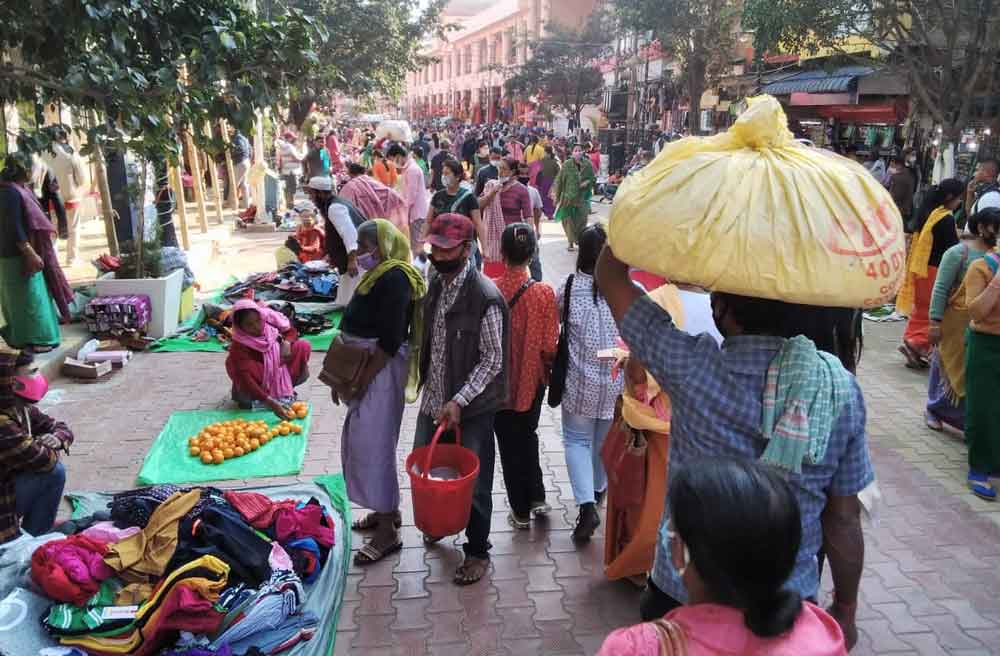Osmee Nongmeikapam,
Lecturer in Tamphasana Girls Higher Secondary School

Nestled in the serene landscapes of northeastern India, Manipur is renowned for its natural beauty and vibrant cultural heritage. However, beneath this beauty lie profound challenges in governance that demand immediate attention and reform. These challenges, rooted in systemic inefficiencies and ethical concerns, underscore the urgency of revitalizing India’s democratic principles and constitutional rights.
Empowering Through Political Education
In Manipur, the selection and education of political leaders often neglect critical aspects of governance and public service. While leaders may excel in various fields, there remains a significant gap in political education and ethical governance practices. This gap hampers effective decision-making and policy formulation, impeding Manipur’s progress toward a better quality of life.
To address these issues, there is an urgent need to empower elected representatives with comprehensive political education. This education should encompass the principles of public policy, ethical leadership, and the responsibilities outlined in India’s constitutional framework. By equipping leaders with the knowledge to navigate complex governance challenges, we can ensure policies that foster inclusive development, economic stability, and social justice.
Upholding Constitutional Rights and Values
India’s Constitution provides a robust framework for governance, emphasizing equality, justice, and the protection of fundamental rights. Articles 14, 16, and 21 ensure equal opportunity, non-discrimination, and the protection of life and personal liberty for all citizens. However, in Manipur, there are challenges in implementing these rights, particularly concerning the fair treatment and rights of government employees.
Ensuring Fair Treatment of Government Employees
Many government employees in Manipur face prolonged hardships due to delayed salaries and uncertain job conditions. This not only violates their constitutional rights but also undermines their morale and effectiveness in delivering essential public services. Contract employees, who work alongside regular employees, often suffer even more. Despite working like regular employees, they receive less pay and face delays in salary payments, leading to financial instability and stress. Many contract employees remain in these precarious positions for more than three or four years, raising questions about their rights under our constitutional policies.
How long should an employee remain on a contract basis, and what benefits does the government gain by keeping them in such conditions for more than two years? Isn’t this a form of human exploitation? What is the purpose of having individuals remain on a contract basis for half their lifetime? Does it justify their education and qualifications? What kind of quality work product can be expected under these conditions? Why is there a lack of empathy and sympathy for those who are the sole breadwinners of their families?
Moreover, the issue of maternity leave for contract employees highlights another layer of injustice. Women on a contract basis are granted only 21 days of maternity leave, which starkly contrasts with the longer leaves provided to regular employees. This discrepancy not only violates principles of equality but also constitutes human exploitation. According to Article 42 of the Indian Constitution, the state should make provision for securing just and humane conditions of work and for maternity relief. The inadequate maternity leave policy for contract employees is a glaring violation of this directive.
Promoting Economic Stability and Development
Effective governance reforms in Manipur are crucial for promoting economic stability and sustainable development. By addressing governance inefficiencies and promoting transparency, we can create an environment conducive to investment, job creation, and equitable growth. This, in turn, enhances livelihoods, reduces poverty, and empowers communities to prosper.
Strengthening Civic Engagement and Accountability
Central to India’s democratic ethos is the active participation of citizens in governance processes and holding elected representatives accountable. Civil society organizations and advocacy groups play a vital role in advocating for reforms, promoting transparency, and safeguarding constitutional rights. Their efforts ensure that governance practices align with democratic principles, benefiting all segments of society.
Fostering a Culture of Ethical Governance
At the core of governance reforms lies the cultivation of ethical behavior among leaders and public officials. Upholding integrity, transparency, and accountability in decision-making processes builds trust with the public and strengthens democratic institutions. It also ensures that policies and programs serve the common good, free from corruption or exploitation.
Modi’s Initiatives and Their Relevance to Manipur
Prime Minister Narendra Modi has championed several initiatives aimed at fostering economic growth, improving employment opportunities, and combating corruption across India. These initiatives, such as Make in India, Skill India Mission, and Startup India, hold significant potential for Manipur’s socio-economic landscape. By promoting local industries, enhancing skill development, and supporting entrepreneurship, these initiatives can create employment opportunities and stimulate economic growth in the state.
Addressing the Plight of Ordinary Citizens
Amidst governance challenges in Manipur, ordinary citizens often bear the brunt of administrative inefficiencies and systemic neglect. Many face hardships ranging from lack of basic amenities to economic insecurity, leading to severe mental health issues such as depression and, tragically, instances of suicide. Despite these pressing issues, authorities often fail to demonstrate empathy or take decisive action to alleviate the suffering of individuals across the state. Although there are numerous issues and conditions in Manipur, it is crucial to address them proactively. Just as we cannot ignore our daily meals, we cannot ignore, refrain from, or subside these issues. The more we subside them, the worse they will get. Timely response and resolution are essential for a better future.
Recognizing Government Efforts
It is important to acknowledge that the government has made significant strides in various areas. Initiatives aimed at economic development, social welfare, and digital empowerment have laid the foundation for a brighter future. However, there remains much to be done. By emphasizing and solidifying these efforts, we can ensure a better future for Manipur and the entire nation.
Our Chief Minister and concerned ministers have already provided a number of services for the people. It would be highly appreciated if they could look into these matters and find immediate solutions. The people of Manipur would be very grateful to the governing bodies and the Constitution for addressing these urgent issues.
Conclusion: A Path Forward for Manipur and India
In conclusion, the challenges faced by Manipur underscore the need for comprehensive governance reforms rooted in India’s constitutional values and democratic principles. By empowering leaders with political education, ensuring the rights and fair treatment of government employees, and fostering a culture of ethical governance, we pave the way for a brighter future.
Since we are part of a democracy, one humbly expresses one of the very few grievances of our many souls through this window to the world so that solutions can be brought to it. One is no expert but shares the little knowledge and experiences of those who are bearing the load, expressing it since it has become too unbearable already.
Let us seize this opportunity to reform Manipur’s governance framework, ensuring it aligns with the aspirations of its people and contributes to India’s broader journey towards a more just, inclusive, and prosperous society. Through collective efforts and steadfast commitment to constitutional rights and values, we can build a Manipur—and an India—where every citizen thrives and contributes to the nation’s progress.













